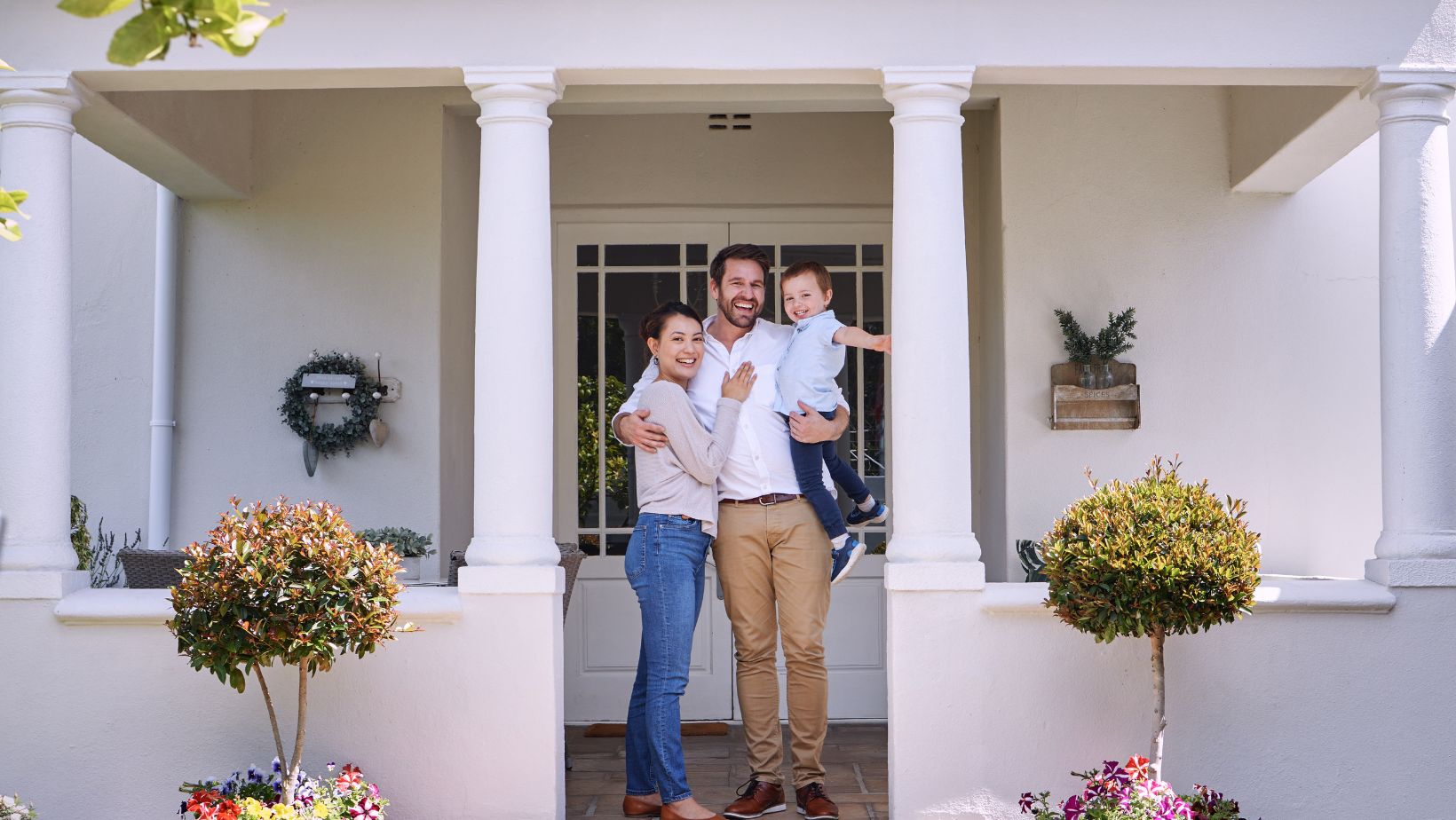
Behind every “key to the new home” photo is a story. These days, the story isn’t as straightforward as it used to be, depending on your age, marital status and financial situation.
With fluctuating market conditions such as inflation, the lack of entry-level homes and rising interest rates, Gen Zers and millennials have had to get creative to reach the milestone of owning a home. A recent survey launched in partnership with Pollfish in June 2024 of 2,500 adults aged 18 to 54, who either bought a house in the last 18 months or plan to buy one soon, explored the fascinating difference in homeownership trends between generations of single and married aspiring homeowners.
Some demographic groups have the cards stacked against them when entering the housing market. For example, millennial homeownership rates are lagging behind other generations, while the “singles tax” can slow down singles from saving for a downpayment or qualifying for a mortgage.
However, these recent survey findings reveal that prospective homebuyers find unique ways to overcome financial hurdles. Here’s what you need to know.
Homeownership Rates By Marital Status
The goal of this survey was to look at the impact of interest rates on potential homebuyers – and the results reveal intriguing distinctions in homeownership rates among single and married younger people. Gen Z (12-27 years old) and Millennials (28-43 years old) are distinct generations with unique characteristics shaped but this survey found a significant overlap between those age ranges, specifically 25-to 34-year-olds, regarding mindsets around purchasing a home today.
For example, married individuals aged 25-34 are currently in charge of home buying, with 64% having purchased homes in the last 18 months, compared to only 35% of their single counterparts.
That said, single people aren’t giving up on their dreams of homeownership: 65% of single respondents said they plan to buy a home soon, compared to only 36% of married respondents who haven’t yet acquired their property.
Some are choosing to wait it out due to high interest rates. Singles are more likely to postpone their purchase because of market conditions, with 42% of single potential homeowners doing so compared to 26% of their married counterparts.
Financial Strategies For Single Homebuyers
While something is to be said about entering the housing market at the right time, singles shouldn’t wait until they meet a partner to become homeowners. Homeownership can be a tool to grow wealth – it doesn’t have to be about finding a forever home to settle down into.
Younger singles seem to be realizing this. From house hacking to co-buying and leaning on family financial support when available, single millennials and Gen Z are leveraging creative strategies to achieve home ownership.
What’s house hacking? It’s the practice of purchasing and renting out parts of a property to help cover mortgage payments and offset home ownership costs. Building a tiny house behind your main property or turning your basement into a separate guest suite can generate an extra income stream. According to iQuanti’s survey, 55% of single homebuyers embrace house-hacking.
Pooling resources with friends or family members is another tactic young singles embrace, with 30% of single homebuyers doing so. Splitting the financial burden in this way translates into more significant down payments and financing options, which can help overcome housing inventory challenges.
Not every homebuyer has this privilege, but relying on financial support from relatives can also help overcome barriers. From gifts and loans that go a long way towards a downpayment to co-signing mortgages to secure better loan terms, 36% of survey respondents have accepted help from family to achieve home ownership.
Married Homebuyers: Benefits And Challenges
So, is being married better than owning a home? Married millennials and Gen Z benefit from combined incomes and shared financial responsibilities. Let’s face it: Having two incomes makes homeownership more attainable by increasing purchasing power and loan eligibility.

However, married couples can also fall into the trap of becoming “house poor” and having most of their income disappear into house-related expenses. They face more pressure to purchase larger homes or homes in more desirable areas since they may be thinking about living there long-term or possibly starting or expanding their family. This can translate into higher overall expenses.
Interest Rate Perceptions And Actions
Interest rates play a crucial role in home-buying decisions. And there are surprising differences in how singles and married buyers perceive those rates. For example, 53% of single people considering the purchase of a home believe that mortgage rates are increasing. As a result, 42% have postponed their plans. Despite this, many are still actively seeking mortgage options that accommodate higher rates, with 20% of single homebuyers exploring adjustable-rate mortgages (ARMs) and 31% using discount points (or mortgage points) to lower rates.
Interestingly, married prospective homebuyers are slightly more likely to believe that mortgage rates are increasing (63% of respondents). However, they are also less likely to let interest rates influence their plans. Only 26% of married buyers have postponed their foray into home ownership, with 38% actively working with lenders to find favorable mortgage terms.
Here’s another eye-opening insight: Married couples are more likely to consider adjustable-rate mortgages than singles (30% of respondents vs. 20%). Knowing that you share the financial burden of a potential mortgage payment increase with your partner may help you feel more comfortable with risk.
Bottom Line
The path to homeownership looks different for everyone. For millennials and Gen Z, it’s influenced by factors including marital status, financial strategies and perceptions of interest rates.

Single buyers leverage creative solutions like house hacking and co-buying to become homeowners, while married buyers benefit from dual incomes and shared financial responsibilities. However, both groups face the challenges posed by rising interest rates – and they are adapting accordingly.
Survey Methodology:
The survey, launched on June 5, 2024, with Pollfish, explored the impact of interest rates on homebuying decisions. Conducted over 48 hours with 2,500 respondents aged 18-54, it targeted recent and prospective homebuyers, focusing on perceptions of interest rates and their effect on behavior. The results, weighted for age and gender balance, provide insights into trends and challenges in the current interest rate environment.
Disclaimer: Article content is intended for information only. It may not reflect the publisher nor employees’ views. Consult a mortgage professional before making financial decisions. Publishers or platforms may be compensated for access to third party websites.












